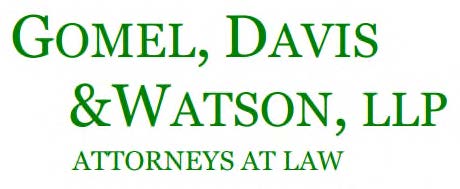Paycheck Protection Program Update: Loan Forgiveness Applications

In new Interim Final Rules released on August 24, 2020, the U.S. Small Business Administration has issued new guidelines regarding the forgiveness of Paycheck Protection Program ("PPP") loans. These new guidelines are summarized below. As a result of these and other new directives being issued on a frequent and unpredictable basis, our recommendation is to delay submitting any forgiveness application with your financial institution until the forgiveness rules come into clearer focus. In our opinion, it is very likely that the forgiveness rules will change between now and the end of the year. In general, a forgiveness application should be filed within 10 months after the end of the applicable "covered period."
- Owner-Employees
Previous rules set a cap on the amount of loan forgiveness available with respect to the compensation of an owner-employee of a C-Corporation or S-Corporation borrower. In the August 24 guidance, the SBA clarified that owner-employee status is not triggered unless a particular individual owns 5% or more of the corporate borrower. This new position is intended to grant leniency to those owner-employees who have no meaningful ability to influence decisions over how loan proceeds are allocated. The forgivable amount for compensation of owner-employees with a 5% or greater ownership stake in a corporate borrower is more limited than the forgivable amount of compensation for non-owner-employees. - Loan Forgiveness for Expenses of Subtenant
The amount of PPP loan forgiveness may not include any amount attributable to the business operation of a borrower's subtenant. For example, if a borrower rents an office building for $10,000 per month and subleases a portion of the building for $2,500 per month to another party, only $7,500 per month is eligible for forgiveness. - Related Party Expenses
Rent payments made to related parties, during the "covered period," are eligible for forgiveness provided that (i) the amount of loan forgiveness requested for rent or lease payments to a related party is no more than the amount of the mortgage interest owned on the property, and (ii) the lease and the mortgage were entered into prior to February 15, 2020. For practical purposes, this means rent payments to a related landlord are not are not eligible for forgiveness if the property is owned outright (i.e., the owner is paying no mortgage interest on the property). Any common ownership of the tenant and the landlord will create related parties.
Please note that this summary is for your general information and is not legal or tax advice. If you have any questions of if you would like specific guidance as to how we may be able to assist you in your particular situation, please contact us.
GOMEL, DAVIS & WATSON, LLP
(404) 233-5900
www.gomeldavis.com
2400 Marquis One Tower, 245 Peachtree Center Avenue, N.E.
Atlanta, Georgia 30303-1241
